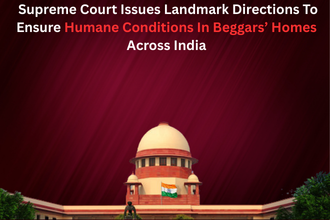In a landmark judgment that significantly reshapes the restructuring framework under the Insolvency and Bankruptcy Code, 2016 (IBC), the Supreme Court of India has ruled that prior approval from the Competition Commission of India (CCI) is mandatory for notifiable transactions under the IBC. Delivered on January 29, 2025, in the case Independent Sugar Corporation Ltd. v. Girish Sriram Juneja & Ors., the verdict reinforces that regulatory procedures are not merely technicalities, but crucial safeguards in ensuring fair competition and lawful restructuring.
This judgment has far-reaching implications on how corporate restructuring is handled in India, especially when merger and acquisition transactions fall within the purview of the Competition Act, 2002. Let’s break down the key aspects, implications, and compliance measures you need to know.
Understanding the Case: INSCO vs AGI Greenpac
The case arose from a dispute during the Corporate Insolvency Resolution Process (CIRP) of Hindustan National Glass and Industries Ltd (HNGIL), a major player in India’s glass packaging industry. Both Independent Sugar Corporation Ltd (INSCO) and AGI Greenpac Ltd. (AGI) submitted competing Resolution Plans (RPs).
While INSCO obtained Green Channel approval from the CCI, AGI’s plan required a Phase-II investigation due to concerns about market concentration—holding 80-85% in the food and beverage segment and 45-50% in alco-beverage.
Despite pending CCI approval, the Committee of Creditors (CoC) approved AGI’s RP. The National Company Law Tribunal (NCLT) and later NCLAT approved the RP. INSCO challenged this, bringing the matter to the Supreme Court.
Key Rulings by the Supreme Court
1. CCI Approval Must Precede CoC Approval
The apex court interpreted the proviso to Section 31(4) of the IBC to mean that CCI’s approval must come before the CoC evaluates and votes on a resolution plan. The court emphasized the term “prior” is deliberate and cannot be diluted.
This clears any ambiguity: CCI clearance is not an afterthought; it is a condition precedent for CoC’s decision-making.
2. Broad Interpretation of Locus Standi
The Supreme Court allowed INSCO to challenge the approval even as an unsuccessful Resolution Applicant (RA). This liberal interpretation means that any stakeholder or competitor who perceives unfairness or anti-competitive behavior can approach judicial forums.
This opens the door for greater scrutiny and potential litigation in IBC matters involving large M&A deals.
3. Gun-Jumping is a Serious Offense
The judgment reinforced that any attempt to consummate a transaction without notifying the CCI or obtaining prior approval will be treated as “gun-jumping”, a serious regulatory violation under the Competition Act.
This is a clear warning to all Resolution Applicants to strictly adhere to pre-transaction notification norms.
4. Procedural Fairness in CCI Approvals
The court also faulted the CCI for failing to issue a Show Cause Notice (SCN) to HNGIL, the target company. AGI alone received the SCN during the investigation stage, and it proposed structural remedies (such as divestiture of assets) without HNGIL’s direct participation.
The court ruled that all affected parties must be involved in the remedy process. This sets a precedent that modifications to a transaction cannot be accepted unilaterally.
Compliance Guidelines for Stakeholders
Based on this judgment, here are actionable steps for Resolution Applicants, CoCs, and legal advisors:
✅ 1. Apply for CCI Clearance Early
Do not wait for the RP to be finalized. Initiate CCI proceedings right after submitting the Expression of Interest (EoI) or when deal contours become clear.
✅ 2. Ensure Procedural Transparency
Submit complete and accurate market data to the CCI. Any inconsistency, especially between the acquirer and target, could lead to delays or outright rejection.
✅ 3. Coordinate with All Parties
During competition review, the CCI must issue SCNs to both acquirer and target. RAs must actively engage the target during remedy discussions, especially when structural changes like divestitures are proposed.
✅ 4. Adhere to Timelines
The judgment clarifies that the Competition Act and IBC timelines do not conflict. CCI has up to 150 days to process approval, while IBC allows a 330-day resolution window. Start early to avoid unnecessary crunch.
✅ 5. Document All Approvals
Ensure that the RP placed before the CoC contains a copy of the CCI’s clearance. Lack of documentation will lead to legal challenges and potential reversal of approvals.
Implications for the Insolvency Ecosystem
This decision brings clarity, accountability, and legal certainty to a previously gray area in the intersection of insolvency and competition law. Key implications include:
- Higher due diligence costs and timelines for resolution applicants
- Increased litigation risk for RPs lacking regulatory compliance
- Greater scrutiny by CoCs, NCLT, and NCLAT during RP evaluation
- Enhanced role for CCI in shaping resolution outcomes
Ultimately, the ruling reaffirms that India’s insolvency framework must coexist harmoniously with competition law principles.
The Way Forward: Reforms and Process Overhaul
Post this judgment, it’s expected that the CCI will overhaul its processes, especially for notifiable combinations in CIRP cases. Likely changes include:
- Mandatory SCNs to all parties
- Monitoring mechanisms for market data accuracy
- Post-approval audits of remedies like divestitures
- Standard operating procedures for pre-RP notifications
Law firms and transaction advisors must educate clients on this compliance framework and redesign deal timelines to integrate CCI’s role from the outset.
Final Thoughts
The Supreme Court’s judgment is a significant step toward regulatory harmonization. It reiterates that procedural compliance is not optional, especially in cases involving public interest, distressed assets, and large-scale restructuring.
For RAs, CoCs, and practitioners in insolvency law, this ruling is a wake-up call to rethink transaction strategy with a compliance-first approach.


